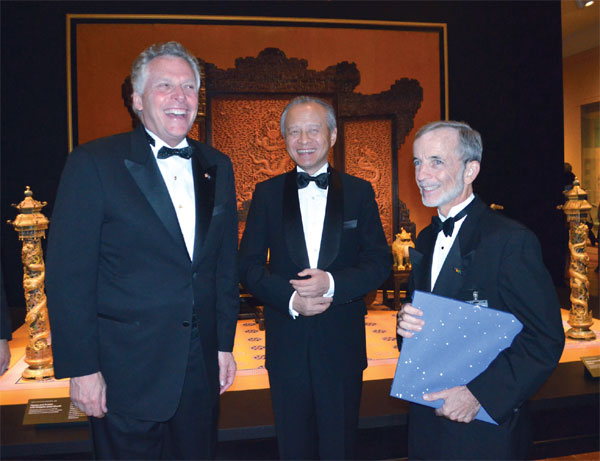Forbidden City art goes on display
Updated: 2014-10-15 11:38
By Cai Chunying in Richmond(China Daily USA)
|
||||||||
|
Virginia Governor Terrence McAuliffe (left), Chinese Ambassador to the US Cui Tiankai (center) and Virginia Museum of Fine Arts Director Alex Nyerges share a light moment in front of a Chinese imperial court setting, which is part of an exhibition entitled Forbidden City: Imperial Treasures from the Palace Museum, Beijing, during the exhibition's opening reception on Tuesday evening in Richmond, Virginia. Cai Chunying / China Daily |
For the 600 or so guests gathered at the Virginia Museum of Fine Arts on Tuesday evening, sipping a specially-brewed beer called Forbidden Ale was part of the celebration to toast the 200 artifacts from the Palace Museum in Beijing, the largest museum in China and palace in the world.
"Tonight we are acquainting people with the great legacy of cultural achievement of China," said Alex Nyerges, director of the Virginia Museum of Fine Arts (VMFA).
The exhibition, titled Forbidden City: Imperial Treasures from the Palace Museum, Beijing, is a project five years in the making between the two museums. The art pieces displayed in the VMFA's Richmond site include paintings, sculptures, costumes, furniture, gold and silver, jade, lacquer, and other decorative arts, representing the imperial collection from China's Ming (1368-1644) and Qing (1644-1911) dynasties. Many of the artifacts have never been outside of China.
"The exhibition opens another window not only to the mystery of China's imperial life, but to China's history and culture," said Chinese Ambassador to the US Cui Tianhai, whose announcement that this was his first trip to Virginia since taking office won warm applause from an audience comprised of government officials, museum benefactors, artists and China experts.
According to director Nyerges, VMFA is the first art museum in the US to establish an extensive collaborative project with the Palace Museum, located in the center of Beijing on the site of what was once the imperial palace, the Forbidden City.
"Why does culture mean so much? Because culture like what we are doing tonight opens economic doors," said Virginia governor Terrence McAuliffe, who also announced he would lead a delegation to China next week.
VMFA and the Palace Museum are in the midst of a series of projects that not only include exhibition exchanges but staff site visits in the areas of administration, curatorial, conservation, education and security.
"Ancient artifacts carry diverse cultures and civilization. They are the most effective bridges for mutual understanding and communication," said Lou Wei, deputy director of the Palace Museum, adding that the exhibition was one of the largest the Palace Museum had ever lent to another country, especially in North America.
To make the exhibition more special, VMFA partnered with Richmond's Hardywood Park Craft Brewery to brew a special beer, a Belgian white ale that is infused with Asian dragon fruit, which is available at the museum's cafe and local markets including the high-end Whole Foods stores.
In May 2016, VMFA's renowned Faberg collection, which features Russian art, will go on display at the Palace Museum, a first for a US museum. With a permanent collection encompassing more than 33,000 works of art spanning 5,000 years of world history, VMFA is one of the oldest and largest comprehensive art museums in the US.
Michele Oka Doner, an artist from New York whose work was collected by VMFA, was among the flock of guests who got a chance to preview the collection before it opens to the public on Oct 18.
"It is just extraordinary. I am very much impressed with the Chinese government's generosity to lend these objects to Virginia," said Doner, who studied Chinese Art 50 years ago as an undergraduate at the University of Michigan.
VMFA is also the first American museum to use 3-D printing technology to create a scaled model of the Forbidden City. Based on its layout, the exhibition is organized into four sections: Rituals of the Qing Court, Court Arts in the Inner Court, Court Paintings and Religion in the Palace.
Li Jian, the exhibition's curator and curator of East Asian Art at VMFA, said she hopes that visitors, on top of enjoying the beauty of the artifacts, can tell the fact that China was a very open society that many years ago, welcoming various Western missionaries to the court to encourage communication with the outside world.
"There is a saying in Chinese, 'He who has never been to the Great Wall is not a true man'. I would like to add a similar one, 'He who has never been to the Forbidden City has not really seen China," said Ambassador Cui.
charlenecai@chinadailyusa.com

 Bilateral difficulties on manageable track
Bilateral difficulties on manageable track
 Forbidden City art goes on display
Forbidden City art goes on display
 White House also produces harvest joy
White House also produces harvest joy
 Taiwan photographer depicts NYC on grand scale
Taiwan photographer depicts NYC on grand scale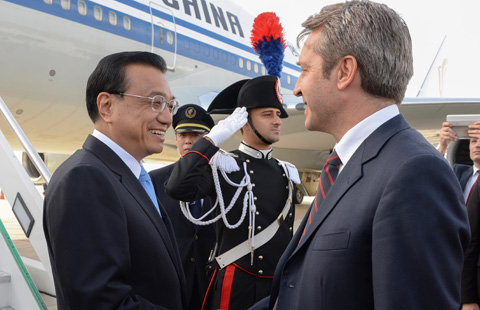
 Premier Li arrives in Rome for official visit to Italy
Premier Li arrives in Rome for official visit to Italy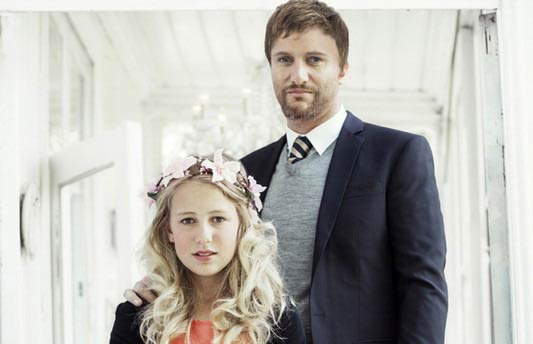
 Child bride 'marries' 37-year-old
Child bride 'marries' 37-year-old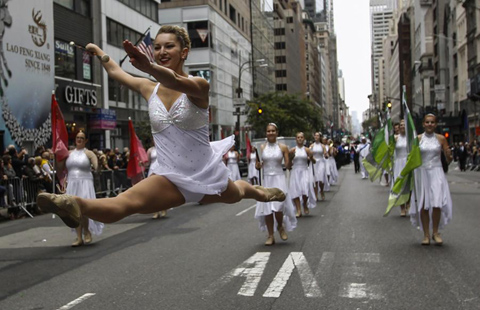
 New York celebrates 70th Annual Columbus Day
New York celebrates 70th Annual Columbus Day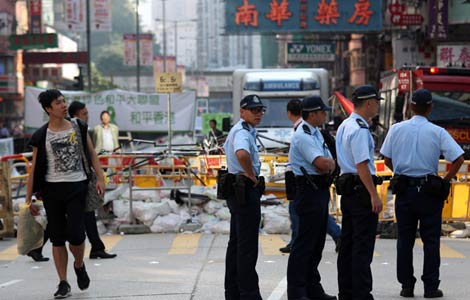
 HK police vow minimum force to remove protest road barriers
HK police vow minimum force to remove protest road barriers
Most Viewed
Editor's Picks

|

|

|

|

|

|
Today's Top News
Chinese, Italian companies sign $10b
Investment in US will continue
Ebola: Rapid-response team set up
Bilateral difficulties on manageable track
Red Bull settles class action
Micro-film festival launches in New York
Forbidden City art goes on display
NBA star dishes on 2008 Olympics and Yao Ming
US Weekly

|

|
